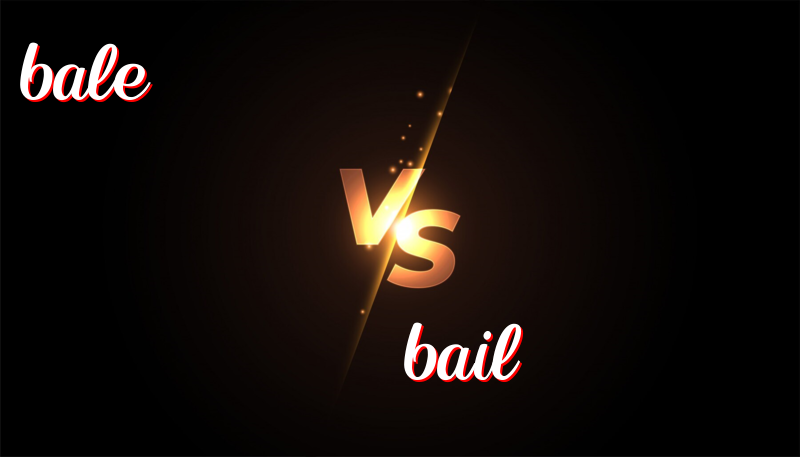英語單詞bale 與 bail的區別
November 15, 2024
區分”Bale”與”Bail”的差異
在學習英語時,了解近音異義詞(homophones)的差異是很重要的,其中一對常被混淆的單詞是“bale”和“bail”。這兩個詞在發音上很相似,但意義和用法上大不相同。本文將詳細說明這兩個詞的歷史、用法,以及記憶它們的技巧。
詞源和歷史
Bale:“Bale”一詞源於中古英語中的“bal”,意指大的包裹或捆綁。這個詞通常用來描述用於運輸或儲存的大捆物品,例如乾草、棉花或紙。
Bail:“Bail”則來自中古法語中的“bailler”,最初是指“將某人授權交付”。在現代用法中,“bail”有幾個意義,常見的是指法律保釋金,也可以用作動詞,表示從船或船上倒出水。
用法說明
Bale的用法
“Bale”是一個名詞,通常用於描述大型和緊密包裹的物品。以下是一些例句:
- The farmer stacked the bales of hay in the barn.
農夫將乾草捆堆放在穀倉裡。 - We need to purchase more bales of cotton for the factory.
我們需要為工廠購買更多的棉捆。 - The paper was delivered in large bales to the printing press.
紙張以大捆的形式送到了印刷廠。 - The wool bale was shipped to a textile company.
羊毛捆被運送到一家紡織公司。 - They wrapped the clothes in a bale for easy transport.
他們將衣物包成一捆以便運輸。
Bail的用法
“Bail”可以作為名詞和動詞使用,與法律保釋或從水中排水有關。以下是一些例句:
- The judge set the bail at $10,000.
法官將保釋金設定為1萬美元。 - He had to bail water out of the sinking boat.
他必須將沉船中的水舀出。 - She was released on bail the next morning.
她第二天早上以保釋金被釋放。 - John’s friend agreed to bail him out of jail.
約翰的朋友同意保他出獄。 - The crew worked hard to bail the water from the flooded basement.
工作人員努力將淹水的地下室中的水排出。
記憶技巧
記住這兩個詞的差異的一個簡單技巧是:“Bale”與“一捆(dale)”中有相同的“a”,“Bail”經常與“fail”有所關聯,因為缺乏排水或保釋通常意味著某種“失敗”或需要“援助”。
總結
總的來說,“bale”常用於描述大捆物品,而“bail”則更多地用於法律條款或排水的情境中。正確使用這些詞可以為你的英語寫作和口語溝通增添準確性。

Leave a Reply
You must be logged in to post a comment.